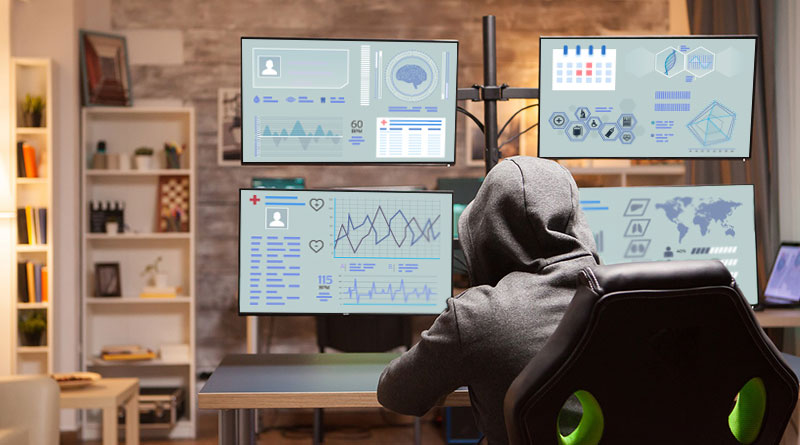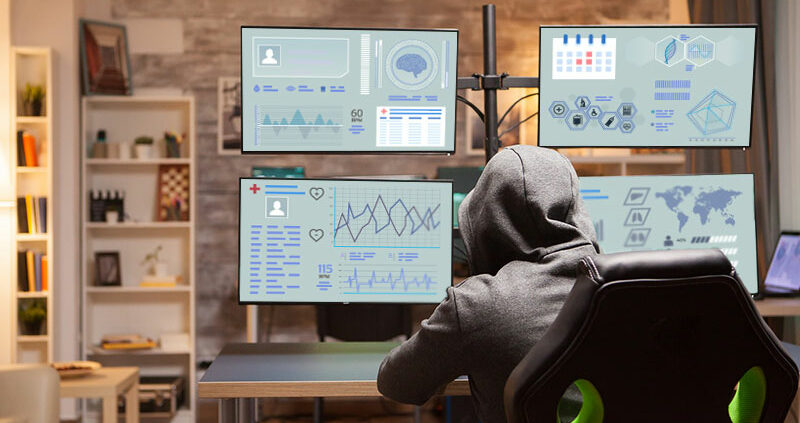Healthcare Data Breaches can lead to Medical Identity Theft

As per The Health Information Technology for Economic and Clinical Health Act (HITECH) requirement, breaches that expose protected health information (PHI) affecting 500 or more individuals must be listed. The Breach Reporting Tool of Health Insurance Portability and Accountability Act (HIPAA), reveals that 26 new incidents were added to the portal at the end of March 2020. These incidents are all related to healthcare data breaches.

The security incidents in the portal list are currently under investigation by the Office of Civil Rights (OCR). It has been reported that out of 26 incidents, 13 were caused by hacks or other IT related incidents, affecting 338,334 individuals. Other noteworthy healthcare data breaches affecting 44,592 individuals were caused by theft, loss, and unauthorized access or disclosure of information.
Healthcare data breaches have had a sustained impact on the quality of delivery care and have made healthcare providers more prone to medical identity thefts. Healthcare data breaches are becoming a pressing concern for providers and there’s no sign of the data breaches slowing down.
How do criminals capitalize on stolen personal health information?
Personal health information (PHI) is any information or data entry that can identify an individual. PHI includes sensitive information such as names, addresses, Social Security of Medical Insurance numbers, information about beneficiaries, financial details including account numbers, and diagnostic images. This type of information can be created or collected by your health plan providers, employers, healthcare providers, or other healthcare entities.
Medical records are not only highly sought out by criminals but are highly desired on black markets too. This kind of information can sell for as much as $1000, depending on the amount of the victim’s information is available. Cyber thieves and criminals can later use stolen healthcare records and they plot illegal schemes, such as medical identity thefts.
How can healthcare providers mitigate negative outcomes?
Healthcare data breaches and medical identity thefts are wreaking havoc on revenue cycle management of hospitals by increasing operational costs and negatively impacting patient experience.
To reduce the risk of healthcare data breaches, hospitals need to implement adequate security measures as per the HIPAA Privacy and Security Rule requirement. In addition to the Security Rule, covered entities are required to issue notifications to affected individuals in the event of breaches to unsecured protected health information, as per The HIPAA Breach Notification Rule. Healthcare providers can use a HIPAA compliance management solution to simplify their administrative operations.
When hospitals adhere to the HIPAA rules effectively, it means they are using appropriate safeguarding measures to keep their protected health information secure. As a result, their networks and devices will have increased protection from cyber attackers and hackers.
To prevent medical identity thefts, hospitals can simply use a biometric patient identification platform such as RightPatient.
How can RightPatient prevent medical identity thefts?
RightPatient is a biometric patient identification platform that locks patients’ medical records. During registration, the patient just needs to provide their biological data such as iris patterns or facial photo, and the platform will use this data to lock their medical records. Next time when the patient arrives at the care continuum, all the patient needs to do is just look at the camera and the platform will accurately identify the individual and bring up their medical records.
This platform prevents fraudsters from illegally accessing medical records by encrypting sensitive information using the patient’s biological characteristics. A fraudster will not be able to simply walk in and use stolen PHI to receive medical services or benefits.
By using RightPatient leading hospitals will have improved patient experiences and healthcare quality and will also reduce the number of denied claims, from which hospitals lose millions of dollars each year.
It is forecasted that the Global Healthcare Biometrics market will reach a market value of $5.8 billion by 2025, at an expected CAGR (Compound Annual Growth Rate) of 19.3% (2017-2025). Implement RightPatient now and stay ahead of the curve.









Leave a Reply
Want to join the discussion?Feel free to contribute!